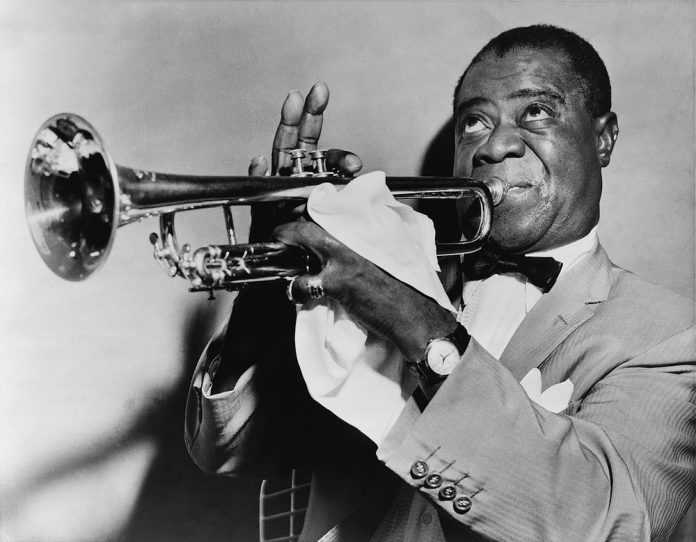Jazz music is an extraordinary genre that has evolved through various styles and forms since its inception in the early 20th century. Originating in the African American communities of New Orleans, jazz has influenced countless musicians and genres across the globe. This article explores some of the most influential jazz musicians who have left an indelible mark on the genre, shaping its development and popularity.
Table of Contents
ToggleLouis Armstrong: The Innovator of Jazz
One cannot discuss the history of jazz without mentioning Louis Armstrong. Born in 1901 in New Orleans, Armstrong was a trumpet virtuoso and a captivating vocalist. He is often credited with transforming jazz from a group-oriented music style to a soloist’s art form. His improvisational skills, distinctive gravelly voice, and charismatic stage presence made him a pioneer of jazz.
Armstrong’s innovative approach to melody and rhythm helped popularize jazz across the United States and beyond. His recordings of songs like “What a Wonderful World,” “Hello, Dolly!,” and “West End Blues” showcase his exceptional talent and have become timeless classics. His influence on both jazz and popular music is immeasurable, earning him the title of one of the greatest musicians in history.
Duke Ellington: The Maestro of Big Band Jazz
Duke Ellington, born Edward Kennedy Ellington in 1899, was a prominent composer, bandleader, and pianist. Ellington played a significant role in the development of big band jazz and was a key figure in the Harlem Renaissance. He led one of the most celebrated orchestras in jazz history, known for its unique sound and innovative arrangements.
Ellington’s compositions, including “Mood Indigo,” “Take the ‘A’ Train,” and “It Don’t Mean a Thing (If It Ain’t Got That Swing),” showcased his ability to blend intricate melodies with sophisticated harmonies. His music often transcended the boundaries of jazz, incorporating elements of classical music and other genres. Ellington’s legacy as a composer and bandleader continues to inspire musicians today.
Charlie Parker: The Pioneer of Bebop
Charlie Parker, also known as “Bird,” was a revolutionary alto saxophonist and composer who played a pivotal role in the evolution of bebop in the 1940s. Born in 1920 in Kansas City, Parker was known for his virtuosic technique, innovative improvisation, and complex harmonic ideas.
Parker’s groundbreaking approach to jazz emphasized improvisation and individual expression. His compositions, such as “Ornithology” and “Ko-Ko,” introduced new chord changes and rhythms that challenged conventional jazz norms. Parker’s influence on jazz improvisation is profound, inspiring generations of musicians to explore new avenues of creativity.
Miles Davis: The Visionary of Modern Jazz
Miles Davis was a versatile trumpeter, composer, and bandleader who played a crucial role in shaping modern jazz. Born in 1926 in Alton, Illinois, Davis’s career spanned several decades and witnessed the birth of various jazz styles, including cool jazz, modal jazz, and jazz fusion.
His album “Kind of Blue,” released in 1959, is often regarded as one of the greatest jazz recordings of all time. With its innovative use of modes rather than traditional chord progressions, “Kind of Blue” paved the way for new improvisational techniques. Davis’s collaborations with musicians such as John Coltrane, Bill Evans, and Herbie Hancock further solidified his influence in the jazz world.
John Coltrane: The Spiritual Innovator
John Coltrane, born in 1926 in Hamlet, North Carolina, was a legendary saxophonist and composer known for his spiritual and avant-garde approach to jazz. Coltrane’s exploration of modal jazz, free jazz, and experimental forms pushed the boundaries of traditional jazz.
His album “A Love Supreme,” a four-part suite released in 1965, is considered a masterpiece that reflects Coltrane’s deep spiritual beliefs and quest for transcendence through music. His innovative use of harmony, rhythm, and improvisation has had a lasting impact on jazz and has influenced countless musicians across genres.
Ella Fitzgerald: The First Lady of Song
Ella Fitzgerald is often referred to as the “First Lady of Song” for her incredible vocal talent and contributions to jazz. Born in 1917 in Newport News, Virginia, Fitzgerald’s career spanned six decades, during which she became one of the most celebrated jazz singers of all time.
Known for her exceptional vocal range, impeccable phrasing, and ability to improvise scat singing, Fitzgerald’s performances are legendary. Her collaborations with jazz giants such as Louis Armstrong and Duke Ellington produced some of the most memorable recordings in jazz history. Hits like “Summertime,” “A-Tisket, A-Tasket,” and “Dream a Little Dream of Me” showcase her artistry and have solidified her place in the pantheon of jazz legends.
The Lasting Legacy of Jazz Musicians
The influential jazz musicians highlighted in this article have each contributed uniquely to the genre, shaping its sound and direction. From Louis Armstrong’s groundbreaking innovations to John Coltrane’s spiritual explorations, these artists have created a rich legacy that continues to inspire musicians and audiences alike. Jazz is more than just a musical genre; it is a cultural movement that celebrates creativity, improvisation, and the human experience. As new generations of musicians emerge, the impact of these jazz titans remains timeless, reminding us of the power of music to transcend boundaries and connect us all.








